Sabinian (604-606) 66th Pope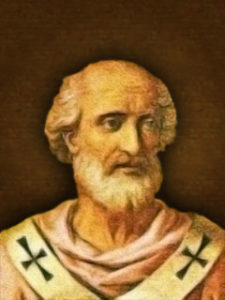
The Lombards went on the warpath again
He replaced many of Pope Gregory’s monks with secular monks
He regulated the ringing of the bells for meditation and prayer
He decreed that sanctuary lamps be always kept burning in the churches
Boniface III (607) 67th Pope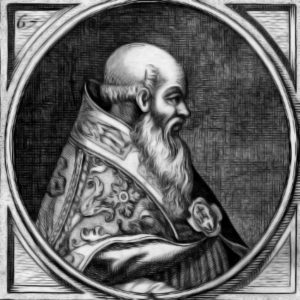
He held a synod which excommunicated anyone who discussed or lobbied a pope or bishop’s successor
He decreed that the only universal bishop was that of Rome, the pope
He forbid arrangements for election of the new pope until three days have passed since the death of the predecessor
St. Boniface IV (608-615) 68th Pope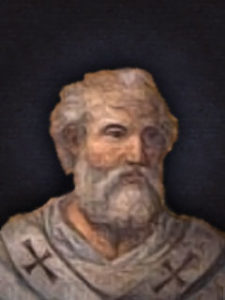
He turned an old pagan temple into a church
He led a synod dealing with affairs of the English Church
The Persians took control over Syria, Persia, Palestine, and Jerusalem
He instituted All Saints Day on November 1st
He sanctioned moral and material improvements for the lower clergy
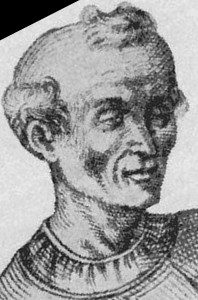
St. Deusdedit I (615-618) 69th Pope
He ordered that churches too small to hold their congregation, Masses could be held twice on Sunday
He tended lepers and the plague stricken.
His is the oldest pontifical seat preserved in the Vatican
He was the first to affix leaden seals (Bullae) to his decrees. Hence the common word for a document, a “bull.”
St. Boniface V (619-625) 70th Pope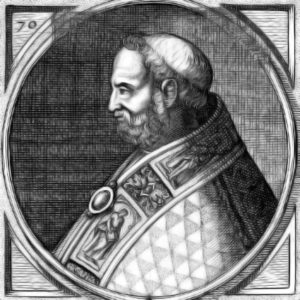
He immediately work on administrative questions that previous pontificates had ignored
He established the right of sanctuary, whereby criminals could elude their pursuers for a period if they could reach a church
He further enacted that notaries must follow the laws of the empire in their work
He ruled that acolytes could not move from one church to another
Mohammed began preaching during this time
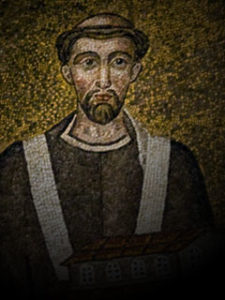
Honorius I (625-638) 71st Pope
He was much concerned with English affairs of the Church, granting authority to the archbishops at York and Canturbury
He oversaw the reorganization of the Church in Spain. After the Visogoths converted, Catholicism became the state church
The southern Irish bishops expressed fidelity to the papacy
He reconciled many of the schismatic churches of northern Italy and restored a number of northern churches
The emperor drove out the Persians out of the empire territories
The Monophysite followers helped paved the way for the easy fall of the provinces to the Persians
Followers of Mohammed felt obligated to subject the whole world to their idea of God, Allah
The emperor felt some compromise formula was needed that both Catholics and Monophysites could accept in order to maintain the empire
This compromise formula created the heresy, that although there were indeed two natures in Christ, there was one “will” between them. (Monothelitism)
However, there is a problem with this statement. If these two wills were united, Jesus would cease to be perfect Man and perfect God.
He was asked to provide a clarification of these doctrinal matters. He avoided this matter by neither defining nor condemning these teachings. He did not speak in an official teaching manner, nor attempting to bind the Church.
He was the first pope ever to be condemned as a heretic by an ecumenical council. The notion of papal infallibility was unclearly defined and determined
The Persians retook Syria, Palestine, and Jerusalem, and northern Africa, changing the Christian landscape
Most of the flourishing cities turned to ruins
Fertile fields and green forests became desert
Churches were turned into mosques
Small bands of native Christians remained in the Near East
The emperor decreed that all residents of the empire accept Monothelitism
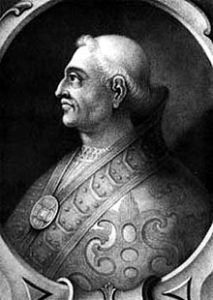
Severinus (640) 72nd Pope
He declared once again that Christ had two wills and two natures
Monothelites believed their formula was the only method for reuniting the Copts and Syrians with Constantinople in the face of the Muslim threat. These believers saw the orthodox as stiff-neck fanatics willing to endanger the military security of the empire for mere religious beliefs
In refusing to accept Monothelitism, the emperor punished the pope by ransacking the Latern basilica and palace
John IV (640-642) 73rd Pope
He asked the northern Irish bishops to observe Easter in the Roman calendar.
He renewed his predecessor’s condemnation of Monothelitism
He himself ordained priests and bishops
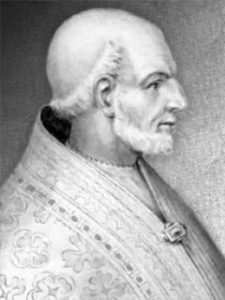
Theodore I (642-649) 74th Pope
He was a benefactor of the poor
He repaired churches
He added the title “Sovereign” to “Pontiff’
He restored order to the internal jurisdiction of the clergy
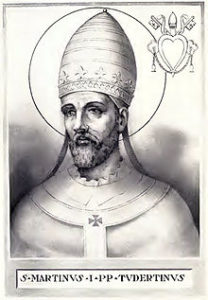
St. Martin I (649-655) 75th Pope
He was aware of the Monoethelite problems
He held a council at Lateran, condemning Monothelitism
He was arrested and exiled for this action
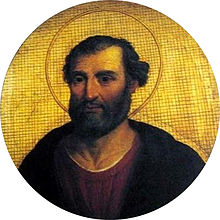
St. Eugene I (654-657) 76th Pope
He reiterated the condemnations made by his predecessor
He decreed the observance of chastity for all priests
The emperor was fighting against Arabs, Avars, and Slavs
St. Vitalin (657-672) 77th Pope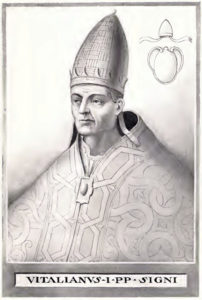
He sought to bring the English Church in agreement to observation of Easter in the Roman calendar
He was the first pope to regulate the liturgical use of the organ, using it during religious ceremonies
In 671 the Lombards were converted to Christianity
Adeodatus II (672-676) 78th Pop
He defended orthodoxy against the Monothelites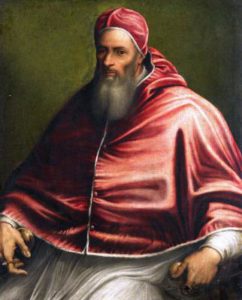
He was an avid restorer of churches
He took the monasteries in Canterbury and France under direct papal protection
Constantinople was under siege by the Arabs
He sent missionaries to convert the Marionites
He was the first pope to use the in his letters, “Health and Apostolic Benediction
Donus (676-678) 79th Pope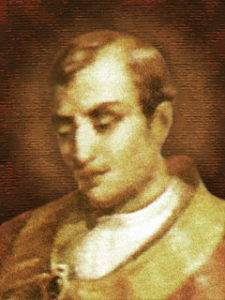
He paved the courtyard in front of St. Peter’s
He ended the schism of the Church in Ravenna
He encouraged the bishops to support new schools in Gaul and Cambridge
St. Agatho (678-681) 80th Pope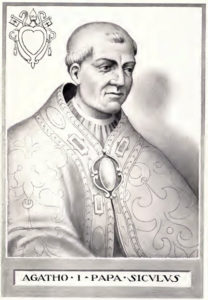
He presided over a council condemning the Monothelites.
Pope Honorius was posthumously condemned as a heretic by that council
He sought to reintroduce the Gregorian Chant into England
He performed many miracles, receiving the title, “Healer”
He maintained strong relationships with the English bishops
He encourages Ireland as a center of culture
St. Leo II (682-683) 81st Pope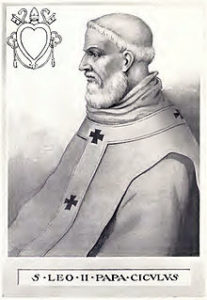
He reformed the Gregorian Chant
He condemned Honorious I
He reconciled the last holdouts of the Northern schism
He celebrated the sacred functions with great pomp in order to make the faithful more aware of the majesty of God
He introduced the sprinkling of the people with holy water during religious functions
St. Benedict II (684-685) 82nd Pope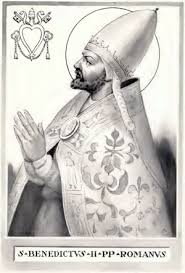
He succeeded in liberating the emperor confirming the pope
He restored the privilege of sanctuary
He was known for his singing ability and knowledge of scripture
He work to suppress Monothelitism
He helped the clergy and supported the care for the poor
John V (685-686) 83rd Pope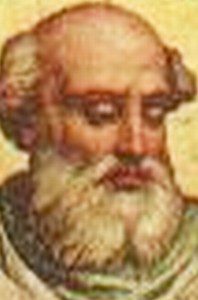
He was able to have emperor reduce the taxes on papal states
He was known for his generosity to the poor
Conon (686-687) 84th Pope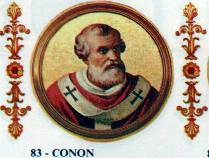
He had a reputation for holiness
His pontificate was deeply disturbed by the anarchy which prevailed in the Church
St. Sergius I (687-701) 85th Pope
He refused to accept disciplinary canon authorized by the emperor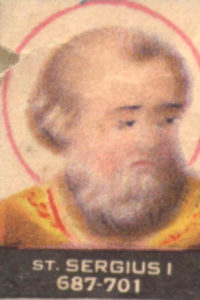
He was much concerned with internal Church affairs
He added the Agnus Dei (Lamb of God) to the Roman Mass
Lamb of God, you take away the sins of the world, have mercy on us.
Lamb of God, you take away the sins of the world, have mercy on us.
Lamb of God, you take away the sins of the world, grant us peace
He instituted processions of the feasts of the Nativity, Purification, Annunciation, and the Assumption of the Virgin Mary
He had sought to end the schism in Rome
